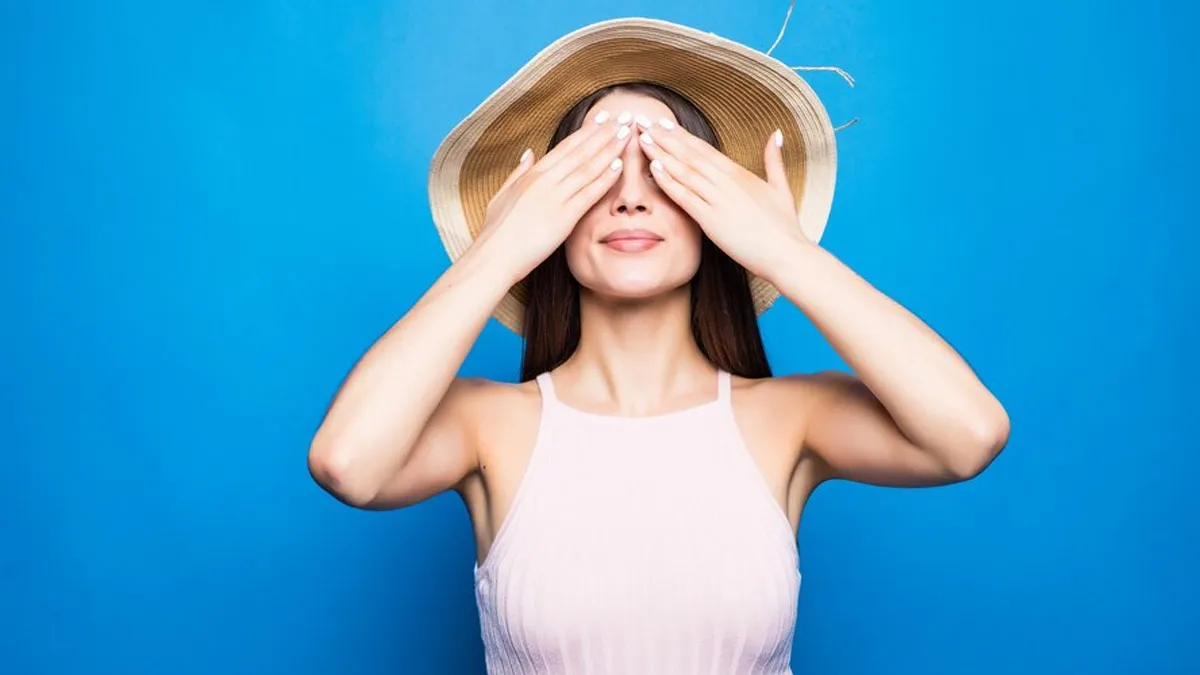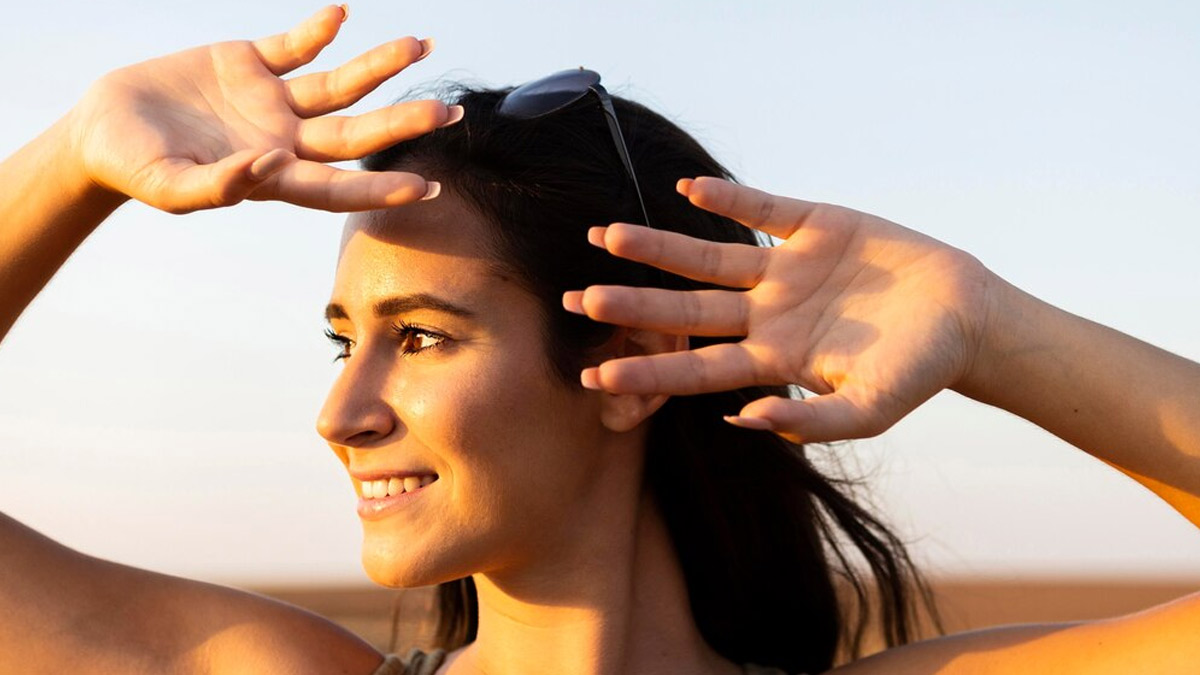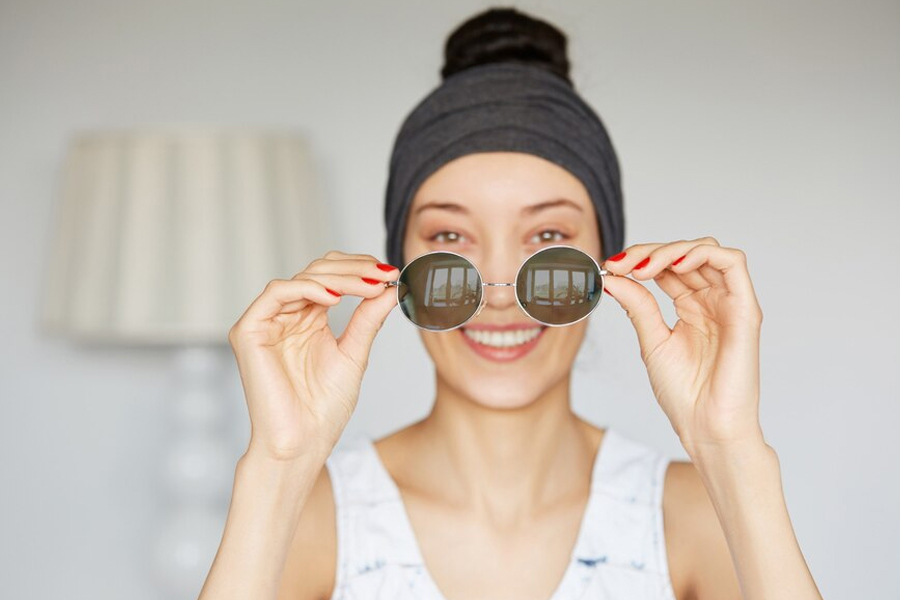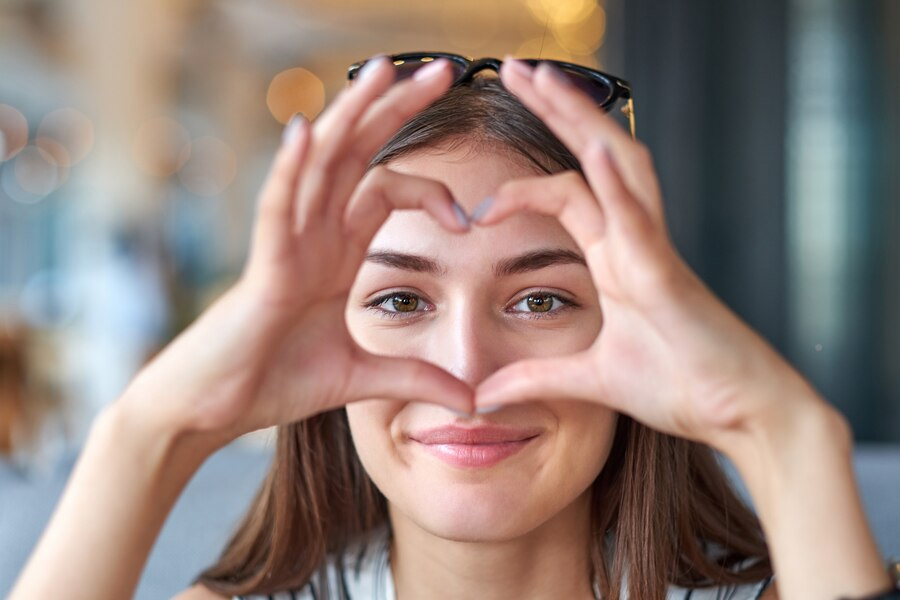
Most people understand the importance of wearing sunscreen. While vitamin D, which you get from sun exposure, is important for your health and wellness, protecting your skin from harmful UV rays is also crucial. What is equally necessary, however, is sun protection for your valuable eyes. A lot of people, while they care for their skin, forget to take care of their eye health.
Table of Content:-
A study published in the Annals of Occupational and Environmental Medicine found that prolonged sunlight exposure is linked to an increased risk of eye disorders, particularly pterygium, a noncancerous growth, and Age-Related Macular Degeneration (AMD), with women being more vulnerable to pterygium.
We also spoke to an expert to understand the harmful effects of sunlight exposure on eye health and what we can do to reduce the risk. Here’s what he shared with us.
Also Read: Winter Eye Care: How To Prevent Dryness, Digital Strain, and Discomfort During Colder Months
UV Radiation Can Harm Your Eyes Too

According to the American Academy of Ophthalmology (AAO), too much exposure to ultraviolet (UV) light raises your risk of eye diseases and other problems.
UV radiation is a type of energy characterised by invisible rays that come from the sun and other artificial sources like tanning beds. Prolonged exposure to UV light can change lens proteins, leading to cataract formation and worsening eyesight, according to the National Eye Institute. Cataracts can blur your vision, making things look foggy or less clear. Too much sun or UV radiation exposure can also increase your risk of getting certain cancers on your eyelids.
Speaking with the OnlyMyHealth team, Dr Ajinkya Deshmukh, Squint, Paediatric, and Neuro-Ophthalmologist, Prabha Eye Clinic and Research Centre, Bengaluru, said, “UV radiation comes in various forms, each having a unique effect on the body. The intensity varies throughout the day. Contrary to popular belief, our unprotected eyes are most exposed to UV rays in the mornings and afternoons. The sun is above us at noon but does not shine directly into our eyes. Effective UV protection is crucial to preventing damage to the skin and eyes.”
“According to ZEISS, a leading brand in optics and optoelectronics, up to 95% of the harmful UV rays can penetrate clouds and damage your skin and eyes. Shade does not entirely protect from UV radiation, as reflected and scattered light still allows 50% of UV radiation to penetrate,” he added.
Eye Issues You Can Develop Without Sun Protection

Without proper sun protection for the eyes, here are some of the eye conditions you may be at risk of:
Cataracts: A clouding of the eye's natural lens, cataracts are one of the leading causes of blindness worldwide. Prolonged UV exposure is a significant contributor to their growth.
Macular Degeneration: This age-related disorder causes central vision loss by affecting the retina. UV light raises the risk of macular degeneration by hastening oxidative damage in the retina.
Photokeratitis:
Often referred to as a ‘sunburn of the eye’, photokeratitis is an uncomfortable ailment brought on by prolonged exposure to ultraviolet light. Temporary loss of vision may occur.
Surfer's eye, or pterygium: It is a benign growth on the eye's surface that can impair vision. One of the main causes is UV exposure, particularly when combined with wind and dust.
Skin cancer around the eyes: Basal cell carcinoma and other skin cancers can develop from UV exposure to the sensitive skin around your eyes.
Also Read: Can Not Sleeping Enough Cause Eyes To Swell? Expert Explains Reasons And Fix
Role Of High-Quality Sunglasses

The AAO recommends buying sunglasses that provide 100% UV or UV400 protection or block both UV-A and UV-B rays.
"Wearing high-quality sunglasses with full UV protection or clear or coloured glasses with full UV protection are two ways to do this... Polarisation improves comfort and clarity by reducing glare, but it doesn't improve UV protection. Better UV protection isn't usually associated with darker lenses. What counts is the UV-blocking coating," shared Dr Deshmukh.
Takeaway
Eye protection is crucial, especially from UV radiation. Wearing a hat and sunglasses is the safest way to shield your eyes from UV radiation. Select sunglasses that fit well and prevent light from penetrating the area around the lenses. Use a hat with a broad, dark brim to provide shade to your eyes and decrease glare. When the sun is at its fiercest, typically between 10 am and 4 pm, consider staying indoors.
Also watch this video
How we keep this article up to date:
We work with experts and keep a close eye on the latest in health and wellness. Whenever there is a new research or helpful information, we update our articles with accurate and useful advice.
Current Version